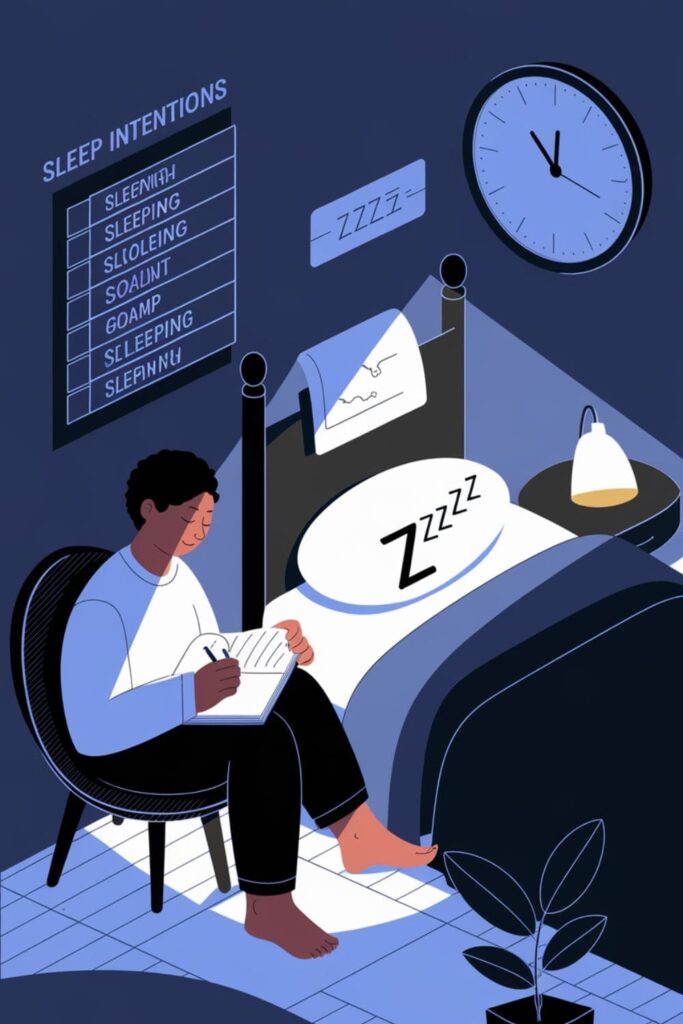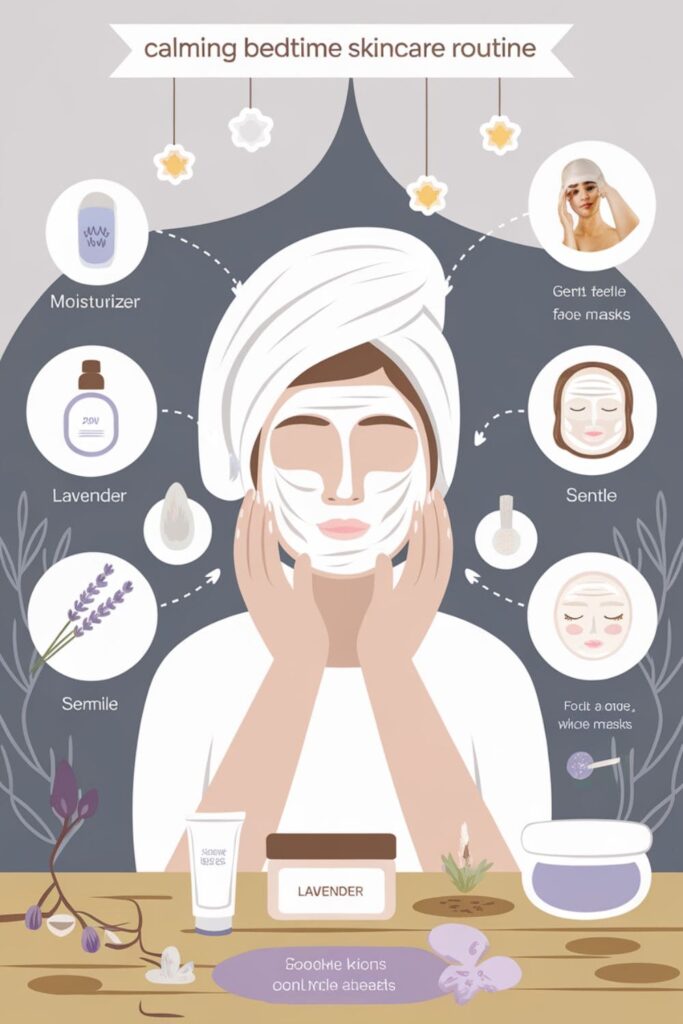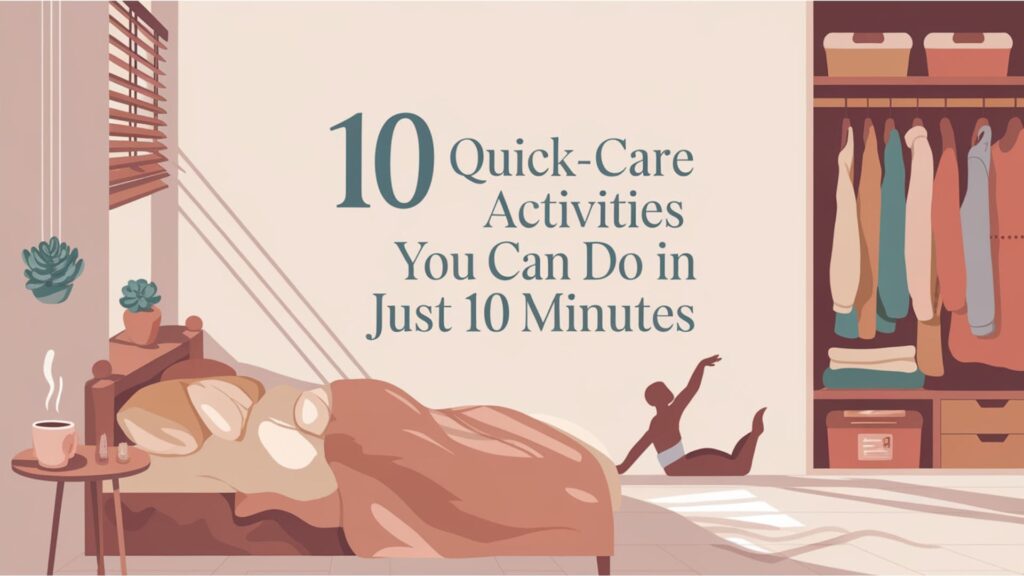Sleep defines our daily rhythm, and in my opinion, it’s more than just a biological necessity, it sets the tone for how we feel, think, and act throughout the day.
However, most people struggle to develop proper nighttime routine, often rushing through their evenings or neglecting self-care.
Now, the good news? Small, intentional changes can make a significant impact on the quality of your sleep, and, by extension, your life, and these nighttime routine tips will help you.

Nighttime Routine Tips: Create a Relaxing Space
1. Evening Hydration

Hydration is somewhat the key to overall health, but how and when you hydrate matters. Sip water mindfully in the evening instead of gulping it down all at once.
This prevents overloading your bladder, which can disrupt your sleep with frequent bathroom trips. Striking a balance between meeting your hydration needs and avoiding nighttime interruptions is crucial.
Make sure to remember, morning hydration is equally important, so trust your body’s natural signals and avoid overcompensating at night.
2. Organize Tomorrow

Set yourself up for success by organizing your essentials before bed, pack your work bag, plan your outfit, and jot down your top priorities for the next day.
This simple act of preparation should help reduce stress and creates mental clarity, allowing your mind to relax. Keep the process simple, avoid overcomplicating it with unnecessary details.
Even five minutes of organization can make your morning smoother and your evening calmer.
3. Manage Evening Meals

What you eat in the evening directly affects your sleep quality, so make sure to aim to finish your dinner at least three hours before bedtime to give your body enough time to digest.
Choose foods that promote rest, like complex carbohydrates and light proteins, and avoid those heavy, spicy, or greasy meals that can lead to discomfort or indigestion.
If you need a bedtime snack, opt for calming choices like a small banana or a handful of almonds. Digestion plays a significant role in how well you sleep, pay attention to your body’s signals.
4. Use Sleep-Tracking

Just start tracking your sleep patterns as it can offer valuable insights into your habits and help you identify areas for improvement. Use an app or a wearable device to monitor factors like sleep duration, interruptions, and overall quality.
Make adjustments based on the data, perhaps you need an earlier bedtime, or maybe you notice a pattern of waking up during certain hours.
Just don’t feel bad if your tracker says you had a bad night and your brain says you had the best night, as no tracking is perfect.
5. Set Sleep Intentions

Sleep isn’t just a passive activity, it can be a purposeful practice. Take a moment to set intentions for your rest, and also decide how many hours of sleep you want to get and define your ideal wake-up time.
Connect these goals to a larger purpose, such as improving your energy for a big project or simply feeling your best. When you treat sleep as a meaningful part of your routine, it becomes easier to prioritize and protect.
Your intentions guide your actions, making restful nights a deliberate choice.
6. Maintain Weekend Consistency

It’s tempting to let your sleep schedule slide on weekends, but maintaining consistency is essential for good sleep hygiene, so try to go to bed and wake up at similar times every day, even on weekends.
Limiting variations to within two hours helps protect your body’s internal clock, but this doesn’t mean you can’t enjoy a late-night movie or a lazy Sunday morning OCCASIONALLY, just be mindful of the impact on your overall routine.
Your body craves predictability, and a consistent schedule helps it function optimally.
Related: 10 Powerful Ways Journaling Improves Mental Health!
7. Clear Mental Space

A busy mind can make it difficult to fall asleep, so before bed, take time to clear your mental space, and write down any lingering worries or tasks in a journal, creating a kind of “to-do list” for tomorrow.
This simple practice provides closure for your brain, signaling that it’s time to relax. Think of it as emptying your mental inbox, what doesn’t get addressed tonight can wait until tomorrow.
This habit not only improves your sleep but also improves your productivity the next day.
8. Bedtime Skincare

Skincare can be more than a beauty routine, it can become a calming ritual that prepares your mind and body for rest. Opt for gentle, soothing products that focus on hydration and repair.
Keep your routine simple yet intentional, using it as a moment of mindfulness, and move your hands slowly and deliberately, treating the process as a meditative act.
Your skin does much of its repair work overnight, so nourishing it before bed is both practical and relaxing.
9. Mind Your Caffeine

Caffeine is a powerful stimulant, and its effects can linger in your system for hours, that is why you consume it in breakfast. Pay attention to your last cup of coffee or tea, aiming to cut off consumption at least eight hours before bed.
If you crave a warm beverage in the evening, switch to caffeine-free herbal teas like chamomile or peppermint. Everyone’s sensitivity to caffeine varies, so experiment to find what works best for you.
Managing your caffeine intake is a simple yet impactful way to improve your sleep.
10. Manage Room Lighting

Light has a profound impact on your body’s ability to relax and produce melatonin, it’s the hormone that regulates sleep. In the evening, dim your lights and use warm, soft bulbs to create a calming environment to help produce melatonin.
Avoid bright or harsh lighting, as it can keep you alert, and if possible, install dimmer switches or use lamps with adjustable settings.
Think about your ancestors, they slept with the soft glow of firelight, which naturally signaled bedtime, so try recreating that atmosphere for better rest.
Conclusion
Quality sleep can change your life. By using these ideas, you can create a nighttime routine that fosters relaxation and prepares you for restorative rest.
Whether you adopt all of these tips or just a few, each small step contributes slowly to better sleep (it won’t happen in a snap, duh) and, ultimately, better days.
Start tonight, and I beleive your future self will thank you for the effort. Better sleep doesn’t just happen, it’s built, one intentional habit at a time.



Pingback: 10 Breathing Exercises to Reduce Stress You Need to Know!